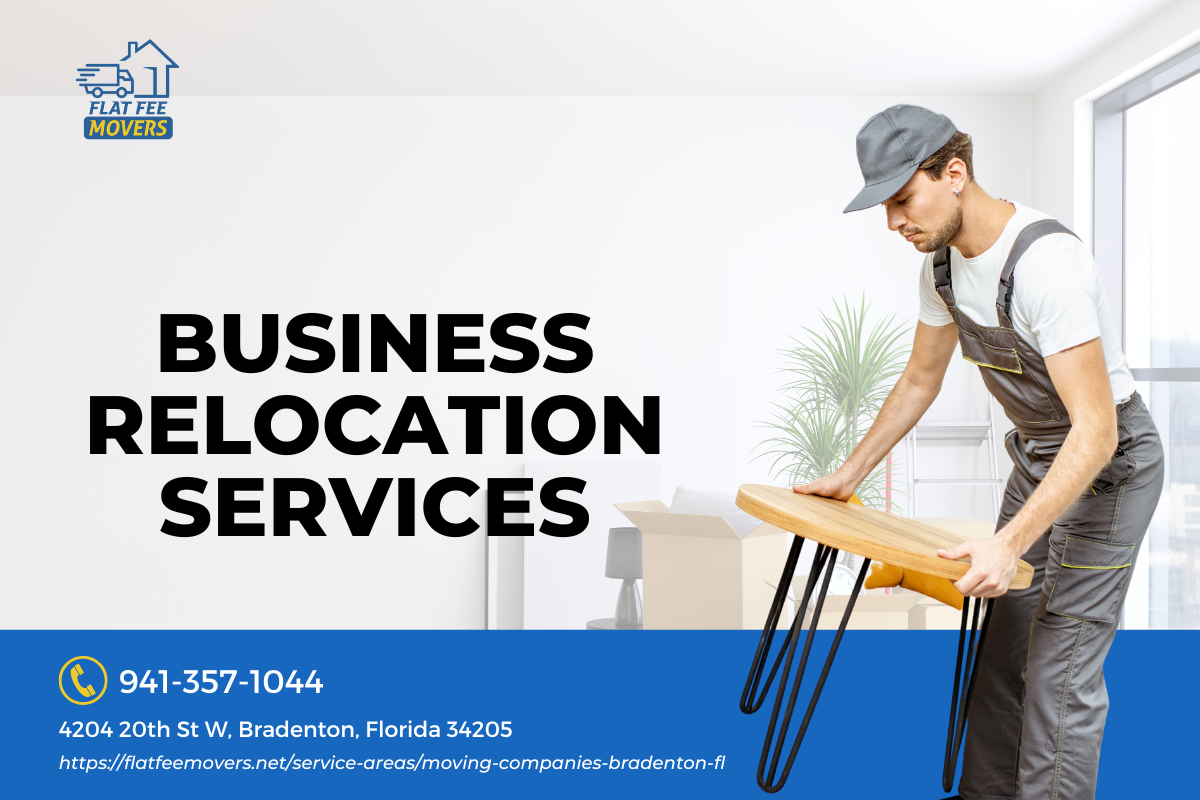


Introduction
Business relocation is a daunting task that many organizations face, regardless of their size. One of the most challenging aspects of this process is ensuring that sensitive equipment is handled properly. Whether you’re moving high-tech machinery, delicate medical devices, or valuable office electronics, it’s crucial to adopt best practices to ensure everything arrives in perfect condition. In this comprehensive guide, we will delve into the nuances of managing sensitive equipment during a business relocation. We will also explore how commercial moving companies can assist in this endeavor.
How to Handle Sensitive Equipment During a Business Relocation
Moving sensitive equipment requires meticulous planning and execution. To achieve success, businesses must prioritize safety and efficiency throughout the entire relocation process. Here are some key steps to follow:
1. Assessing Your Equipment Inventory
Before you begin packing, take the time to assess your inventory of sensitive equipment.
- Identify What Needs Moving: Create a detailed list of all sensitive items that require special attention during the move. Evaluate Condition: Inspect each piece for any pre-existing damage to understand what precautions must be taken.
2. Consulting with Commercial Moving Companies
Engaging professional help can alleviate much of the stress associated with moving sensitive equipment.
- Why Hire Commercial Movers?: Experienced commercial movers have specialized skills and knowledge in handling delicate machinery. Research Moving Companies: Look for commercial moving companies in your area, such as "commercial moving companies Bradenton," that have proven track records.
3. Developing a Detailed Moving Plan
A well-laid plan is essential for a successful relocation.
- Create Timelines: Set clear timelines for each phase of the move. Assign Responsibilities: Designate team members responsible for specific tasks during the packing and moving process.
4. Packing Strategies for Sensitive Equipment
Proper packing is vital when dealing with sensitive equipment.
- Use Quality Packing Materials: Invest in sturdy boxes, bubble wrap, foam padding, and anti-static materials. Label Everything Clearly: Proper labeling helps ensure that items are handled correctly upon arrival at their new location.
5. Disassembling Equipment When Necessary
In some cases, disassembly might be required for safe transportation.
- Follow Manufacturer Guidelines: Always refer to manufacturer instructions when disassembling complex machinery. Keep Track of Parts: Use resealable bags and labels to keep small parts organized.
6. Utilizing Specialized Transportation Solutions
Depending on your equipment's fragility and value, specialized transportation options may be necessary.
- Temperature-Controlled Vehicles: For sensitive electronic devices, consider temperature-controlled transport. Insurance Considerations: Ensure that your moving company offers adequate insurance coverage for high-value items.
Understanding Different Types of Sensitive Equipment
Sensitive equipment comes in various forms across different industries. Understanding these types can enhance your relocation strategy significantly.
7. Medical Equipment Handling Essentials
Medical devices often require stringent handling procedures due to their sensitivity and regulatory requirements.
- Compliance Regulations: Familiarize yourself with regulations governing medical device transportation. Calibration Needs Post-Move: Be prepared to recalibrate devices after they have been relocated.
8. IT Hardware Precautions during Office Moving
IT hardware can be extremely fragile; thus specific care must be taken when relocating them.
Key Considerations:
- Backup Data Before Moving Use Anti-static Packaging Label Network Cables Clearly
9. Manufacturing Machinery Considerations
For businesses involved in manufacturing, heavy machinery poses unique challenges during relocation.
Key Steps:
Consult with Experts Plan for Downtime Ensure Proper Installation at New LocationBest Practices for Working with Commercial Movers
When hiring commercial movers, it's essential to establish clear communication and expectations from the outset.
10. Selecting a Reputable Commercial Moving Company
Choosing the right moving company should involve careful consideration and research.
Factors to Evaluate:
Experience with Sensitive Equipment Insurance Coverage Options Customer Reviews and Testimonials11. Creating an Effective Communication Plan
Communication is key during any business relocation involving sensitive equipment.
Tips:
- Schedule Regular Check-ins Use Project Management Tools Document Everything
FAQs About Handling Sensitive Equipment During Business Relocation
FAQ 1: How do I choose the right commercial movers?
Choosing the right commercial movers involves researching their experience with sensitive equipment handling, reading customer reviews, and ensuring they offer appropriate insurance coverage.
FAQ 2: What should I do if my sensitive equipment gets damaged during transport?
If damage occurs during transport, contact your moving company immediately to file an insurance claim while documenting any damage thoroughly through photographs or written accounts.
FAQ 3: Should I pack my IT equipment myself?
While you can pack IT equipment yourself, hiring professionals who specialize in IT relocations ensures they are packed securely using appropriate materials like anti-static bags and bubble wrap.
FAQ 4: Is it necessary to disassemble my machines before relocating?
Disassembly may be necessary depending on the complexity and size of your machines; always follow manufacturer guidelines before doing so to avoid voiding warranties or causing damage.
FAQ 5: How can I ensure my data remains secure during an office move?
To keep your data secure during an office move, back up all important files before packing your IT hardware and consider using encryption software on devices containing sensitive information during transport.
FAQ 6: What should I include in my moving checklist?
Your moving checklist should include timelines, responsibilities assigned to team members, inventory lists of all sensitive equipment being moved, packing materials needed, contacts for your chosen commercial movers, and post-move setup tasks.
Conclusion
Handling sensitive equipment during a business relocation doesn’t have to be overwhelming if approached methodically and professionally. By assessing your inventory carefully and consulting with reputable commercial moving companies specializing in such transitions—like "commercial movers" or "office movers"—you can streamline the process significantly while safeguarding your valuable assets from potential harm throughout transit.
Investing time upfront into planning will pay dividends down the line as you settle into your new environment seamlessly https://penzu.com/p/a0eacb45175f539c equipped—and ready—to continue operations without unnecessary interruptions or complications arising from improper handling of critical machinery or technology systems during this transitional phase!